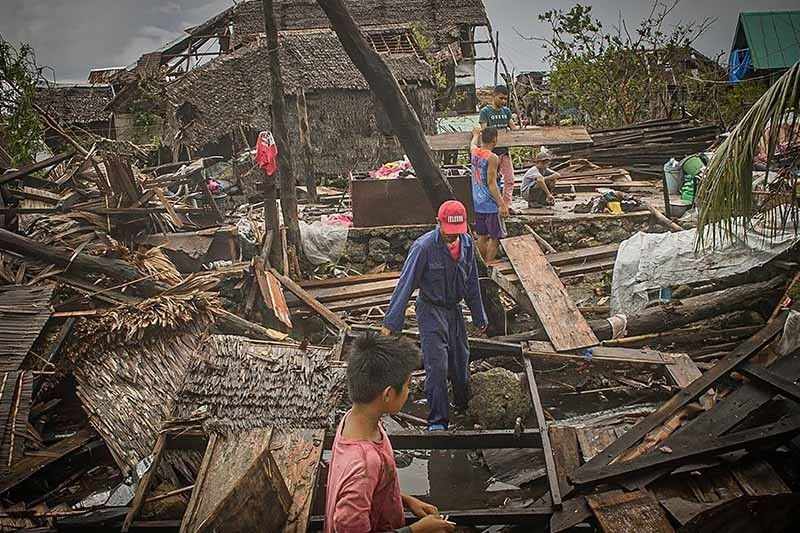All hands on deck to address the climate crisis

President-elect Bongbong Marcos Jr. was recently invited by Egypt’s Ambassador to attend the 2022 United Nations Climate Change Conference (COP27) to be held in Sharm el-Sheikh in November this year. Marcos Jr., who will be inaugurated on June 30, said he would work hard to be at this important event.
COP27 brings governments together to accelerate global efforts to confront the climate crisis. A key agenda point during the upcoming conference will be putting into practice the commitments made in the Paris Agreement to limit global warming to well below two °C and pursuing efforts to limit it to 1.5°C. This year, the conference will primarily focus on how nations plan to implement these commitments through legislation, policies, and programs.
According to the UN’s climate experts, half of the world’s population is now highly vulnerable to the impacts of climate change, and we are approaching the limits of nature’s and humanity’s ability to adapt. Their latest report sent a clear but grim message— we are running out of time.
The Philippines, in particular, faces growing risk. According to the Institute for Economics and Peace, the Philippines is most at risk from the climate crisis. The Philippines is hit by an average of 20 typhoons yearly, and the intensity of the storms has increased in recent years. Rising sea levels also put the archipelagic nation’s coastal communities at risk.
Despite the warnings, climate change is not a top-of-mind issue for many, even here in the Philippines, where the effects are already being felt. A recent survey from Pulse Asia showed that only 11% of Filipinos said that “stopping the destruction and abuse of our environment” was a top national concern. Based on this, the climate crisis is a distant 12th out of 16 pressing national issues included in the survey.
One reason climate gets relegated to the backburner is the financial and economic headwinds many experience today. COVID-19 has taken a heavy toll on the livelihoods of many Filipinos. Many lost income and job opportunities when the pandemic hit. GDP also decreased by 9.5% in 2020, the worst decline since World War II.
These economic concerns reflect in the surveys as well. Filipinos identified controlling inflation, increasing pay, reducing poverty, creating jobs, and providing assistance to the poor as the most urgent national concerns.
Clearly, it the economy and not the environment that is top-of-mind. But in reality, the two are linked. Based to research from the Swiss Re Institute, climate change could wipe off up to 18% of GDP off the worldwide economy by 2050 if global temperatures rise by 3.2°C. On the flip side, according to the International Labour Organization, the green economy could create 24 million new jobs globally by 2030. Closer to home, in the less distant future, the Ambassador to Norway told President-elect Marcos that 50,000 “good paying” jobs would be created if the incoming administration developed the renewable energy sector.
For his part, Marcos Jr. has expressed in the past that he would push for programs that balanced economic development and environmental and climate concerns. For instance, he stressed the need to institute policy reforms and programs such as creating the Department of Disaster Resilience and developing a comprehensive internet-based disaster risk information roadmap to address the harmful effects of natural disasters.
These are welcome plans and programs. However, the incoming administration must also create policies involving other sectors — particularly the private sector— to respond to the climate crisis with the urgency it demands.
According to the Asian Development Bank, the private sector is critical in combating climate change in the region. Furthermore, they said that investing in renewable energy and climate-smart infrastructure are among the ways the private sector can combat climate change. For instance, the private sector could explore waste-to-energy technology and electric mobility. Other examples of climate-smart infrastructure include energy-efficient street lighting and even solar-powered telecommunications cell towers.
Many in the private sector are stepping up to the challenge of adopting more climate-smart business practices. And the emergence and broadening adoption of Environment, Social, and Governance (ESG) standards is evidence of this.
However, while the private sector pivots towards ESG and governments will pledge to meet climate change commitments during COP27, a more significant impact can be achieved in the nexus of public and private sector collaboration.
The incoming administration has quite the challenge; its policies and programs must address the economic concerns while simultaneously addressing the climate crisis. Hence, the government must put policies that enable the adoption of ESG principles and deepen collaboration with the private sector to signal that it is all hands on deck against the climate crisis.
As part of this discussion on combating the climate crisis through public and private sector collaboration, the Stratbase ADR Institute (ADRI) has partnered with the advocacy group Philippine Business for Environmental Stewardship (PBEST) to organize a Virtual Roundtable Discussion (VRTD) entitled “Promoting an Investment-Led and Sustainable Economy.” This virtual event will be held on June 23, 2022 (Thursday) from 9:00 a.m. to 11:00 a.m.
This virtual event is open to the public and hopes to serve as an avenue for the country’s top business leaders and industry experts to discuss challenges and opportunities faced by the private sector to help the economy become more sustainable and resilient. The vRTD will also touch on the private sector’s best practices for advancing environmental, social, and governance standards. Further details can be found on the think tank’s social media channels.
Paco Aguiling Pangalangan is the executive director of think tank Stratbase ADR Institute.
- Latest




























